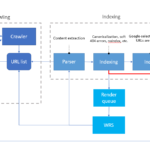How to Manage PCOD/PCOS Naturally: A Detailed Guide for Women
By Sonali Behera, FITTR Coach
Introduction
PCOD (Polycystic Ovarian Disease) and PCOS (Polycystic Ovary Syndrome) are hormonal disorders that affect a growing number of women across the world. Studies show that around 1 in 5 women in India alone suffer from PCOD or PCOS. These conditions not only cause hormonal imbalances but also impact metabolic, reproductive, and psychological health.
Common complications include:
- Irregular periods and hormonal disruptions
- Difficulty in conceiving due to ovulation issues
- Higher chances of miscarriage
- Insulin resistance leading to Type 2 Diabetes
- Increased risk of cardiovascular disease
- Elevated chances of ovarian cancer in the long term
The good news?
With a few focused lifestyle changes and consistent medical supervision, PCOD/PCOS symptoms can be managed effectively and naturally!
5 Effective Ways to Manage PCOD/PCOS
1. Focus on Nutritional Requirements
Balanced nutrition forms the foundation of managing PCOD/PCOS.
Key Points:
- Whole Grains: Choose fiber-rich options like oats, quinoa, brown rice, and barley. They stabilize blood sugar and insulin levels.
- Fruits and Vegetables: Rich in antioxidants, vitamins, and minerals. Aim for colorful plates including berries, spinach, kale, broccoli, carrots, and tomatoes.
- Lean Protein Sources: Include eggs, chicken breast, turkey, fish (especially salmon and sardines rich in Omega-3s), tofu, low-fat paneer, and Greek yogurt.
- Healthy Fats: Essential fats improve hormonal balance. Sources include walnuts, chia seeds, flaxseeds, avocado, olive oil, and fish oil supplements.
Foods to Avoid:
- Highly processed foods (chips, cookies, instant noodles)
- Refined carbs (white bread, pastries)
- Sugary beverages (colas, energy drinks)
- Saturated fats and trans fats (fried foods)
A low glycemic index (GI) diet can help manage insulin resistance effectively.
2. Exercise and Physical Activity
Exercise is not just about weight loss — it’s about hormonal regulation and mental well-being in PCOS management.
Recommended Activities:
- Strength Training: 3–4 days a week. Focus on compound movements like squats, deadlifts, lunges, rows, and bench presses.
- Cardio Exercises: 2–3 days a week. Choose brisk walking, cycling, jogging, swimming, or aerobic classes.
- Yoga and Pilates: Improve flexibility, reduce stress, and help with insulin sensitivity.
Benefits of Exercise:
- Reduces insulin resistance
- Helps regulate menstrual cycle
- Supports weight management
- Lowers inflammation
- Boosts mood and reduces anxiety symptoms
Tip: Consistency is more important than intensity. Choose activities you enjoy to stay regular.
3. Weight Management
Even a small reduction in weight can drastically improve PCOS symptoms.
Important Facts:
- A 5–10% weight loss can restore ovulation, improve insulin sensitivity, and normalize menstrual cycles.
- Focus on fat loss, not just scale weight.
- Set realistic goals: Aim for 0.5–1 kg weight loss per week.
Best practices:
- Maintain a moderate calorie deficit (300–500 kcal/day).
- Prioritize protein intake (1.2–1.6g/kg body weight) to preserve muscle mass.
- Track your progress using measurements, clothing fit, and how you feel, not just the weighing scale.
4. Stress Management
Stress worsens PCOS symptoms by increasing cortisol levels, which further disrupts insulin and reproductive hormones.
Stress-Reducing Techniques:
- Mindfulness Meditation: Practice 5–10 minutes daily using apps like Headspace or Calm.
- Deep Breathing: Try box breathing (inhale 4s, hold 4s, exhale 4s, hold 4s).
- Journaling: Write down your thoughts and feelings to reduce mental load.
- Sleep Hygiene: Maintain a consistent sleep schedule and ensure 7–9 hours of restful sleep.
- Limit Screen Time: Particularly before bedtime to improve sleep quality.
Emotional wellness is as important as physical health in the journey of managing PCOS.
5. Regular Medical Check-ups
Professional medical support is essential in tracking and adjusting your PCOS/PCOD management plan.
Important Health Checks:
- Hormonal Profile: Estrogen, testosterone, LH, FSH, thyroid, and prolactin levels
- Blood Sugar Tests: Fasting glucose, HbA1c
- Vitamin Deficiencies: Vitamin D, B12, iron levels
- Ultrasound Scans: To monitor ovarian cysts and reproductive health
- Cholesterol and Triglyceride Levels: PCOS can increase heart disease risks
Work closely with a gynecologist, endocrinologist, and nutritionist for a holistic approach.
Final Words
PCOS/PCOD management is a long-term commitment, not a quick fix.
By focusing on balanced nutrition, consistent exercise, emotional well-being, weight management, and regular medical care, you can not only control your symptoms but also live a healthier, happier life.
Every small step you take today moves you closer to better hormonal health tomorrow. Stay consistent, stay patient, and believe in your journey!
Frequently Asked Questions (FAQ) about PCOS/PCOD
1. Is PCOS/PCOD a lifelong condition?
PCOS is a chronic condition, but its symptoms can be controlled very well with proper lifestyle changes and medical guidance.
2. Can women with PCOS conceive naturally?
Yes, many women with PCOS can conceive naturally, especially after managing weight, improving insulin resistance, and regulating ovulation.
3. Are birth control pills the only solution for PCOS?
Birth control pills can regulate periods, but lifestyle modification (diet, exercise, stress management) plays a crucial role in long-term management.
4. What is the best diet for PCOS?
A diet rich in fiber, lean proteins, healthy fats, and low in processed sugars is best. A low GI (glycemic index) diet helps regulate blood sugar levels effectively.
5. How important is Vitamin D in PCOS management?
Vitamin D deficiency is very common in women with PCOS. Adequate Vitamin D levels can improve insulin sensitivity and reproductive health.
6. Can PCOS cause depression and anxiety?
Yes, hormonal imbalances and lifestyle struggles associated with PCOS can lead to mental health issues like anxiety and depression. Emotional care is crucial.
7. How fast can PCOS symptoms improve with lifestyle changes?
Some women notice improvements within 3-6 months of consistent efforts in nutrition, exercise, and stress management.
Keywords Integrated:
- PCOS diet plan for women
- PCOD vs PCOS
- Natural ways to manage PCOS
- PCOS exercise routine
- How to reverse PCOS symptoms
- Foods to eat for PCOS
- Best workout for PCOD
- Stress management in PCOS
- PCOS and infertility cure
- Long-term effects of PCOD









